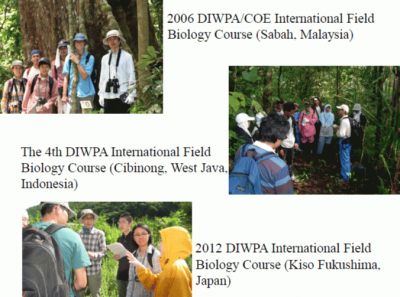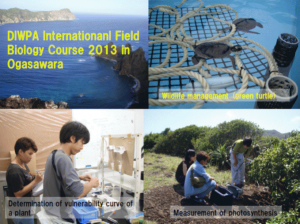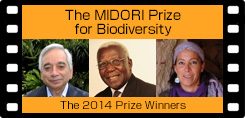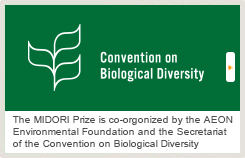19/05/2014
International Network for DIVERSISAS in Western Pacific and Asia (DIWPA), Promotion of Biodiversity Studies through a Network of Researchers - Shin-ichi Nakano
Scientific research through international collaboration is becoming increasingly important. In 1965, the International Biological Program (IBP) was launched, and in 1969, the Ecological Society of Japan examined the establishment of a shared use research center for limnological study in order to promote IBP. In the wake of this, the Center for Ecological Research, Kyoto University was established in 1991. The important thing is that the International Programme of Biodiversity Science (DIVERSITAS) was also launched in the same year in line with the establishment of the CER. In 1992, “Symbiosphere: Ecological complexity for promoting biodiversity,” suggested by the CER as the representative of Japan, was adopted by the IUBS, the SCOPE and the UNESCO, and this adoption greatly encouraged researchers of biodiversity including Japanese ecologists. At the same time, Japanese researchers examined the positive involvement in DIVERSITAS so that Japan could initiate the biodiversity research.
Based on these ideas, the International Network for DIVERSITAS in Western Pacific and Asia (DIWPA) was established. DIWPA has published biodiversity books and newsletters on a regular basis, and has conducted a number of international congresses and capacity building programs including the International Field Biology Course. From 2001 to 2003, DIWPA-IBOY, an international project, was undertaken for simultaneously observing biodiversity throughout the Western-Pacific and Asian regions, as one of the core projects for the International Biodiversity Observation Year, a crosscutting network activity of DIVERSITAS.
Especially, researchers in developing countries including the Western-Pacific and Asian regions find the DIWPA Newsletter (Chair, Shin-ichi Nakano; Secretary General, Atsushi Ishida), published as one of DIWPA’s activities, to be very helpful and convenient, as it timely provides information on the latest trends of biodiversity research throughout Asia such as undertaken by the Asia-Pacific Biodiversity Observation Network (AP-BON) as well as trends in Japan. Sometimes, updated information on biological research is not available for researchers in developing countries. Such information can be obtained through scientific papers, but the latest situations just before publishing papers, or basic arguments made among international researchers for launching projects, is not available from the papers. The DIWPA Newsletter is published to swiftly provide such information so that researchers in developing countries can promptly adjust their actions to the latest research trends.
Another important activity of the DIWPA is to conduct the International Field Biology Course. This course is to invite junior researchers in developing countries to Japan for implementing field research and data analysis in collaboration with Japanese undergraduate students. The course is beneficial for both sides; the junior researchers participating in the course become highly motivated, and the Japanese undergraduate students can strengthen their ability as only English is used throughout the course. The course is conducted for a week, and the period is short. But the participants from Japan and abroad are all satisfied with the course, and in addition, senior researchers organizing the Course are also greatly stimulated by these young scientists.
In recent years, the DIWPA has also been engaged in editing AP-BON Books as one of the AP-BON activities. As well as Japanese researchers, Asian researchers of biodiversity have limited opportunities including for the publication of scientific papers, although they have plenty of data. The AP-BON Books play an important role in positively presenting unpublished but precious biodiversity information in Asia. Of course, the books include leading-edge technologies and front-line information on the measurement and evaluation of biodiversity.
This is how the DIWPA has steadily built up its achievements. Our activities are still developing, but we expect that the growing role of the DIWPA will become greater, in line with the commencement of large-scale studies on global environment including the Future Earth.
(Shin-ichi Nakano, Director and Professor, Center for Ecological Research, Kyoto University)
News about the MIDORI Prize 2014 is published on the DIWPA Newsletter No. 30 (the last page).












